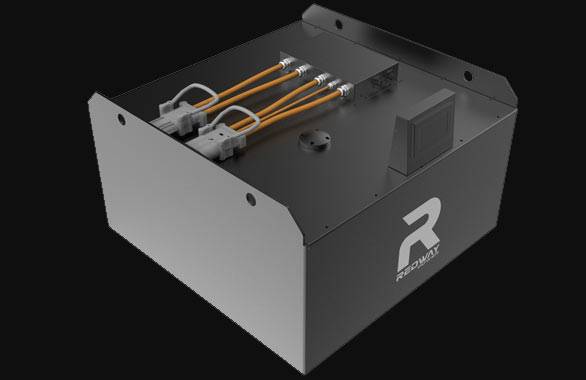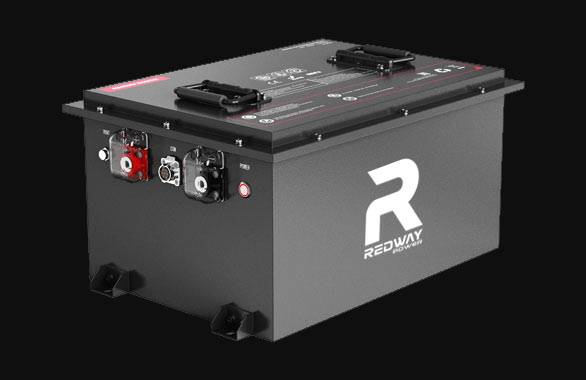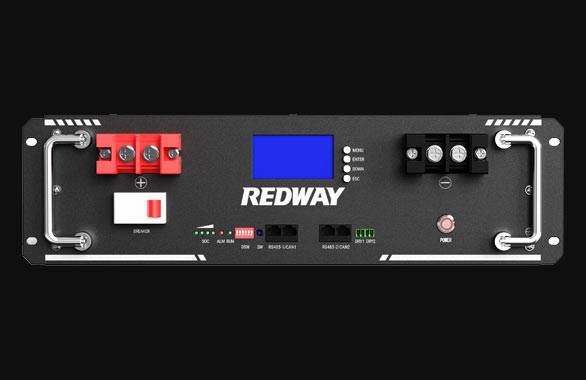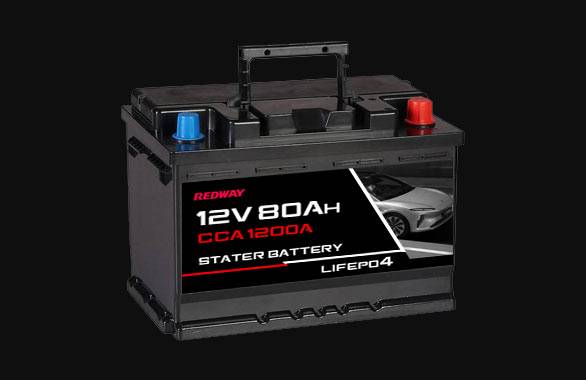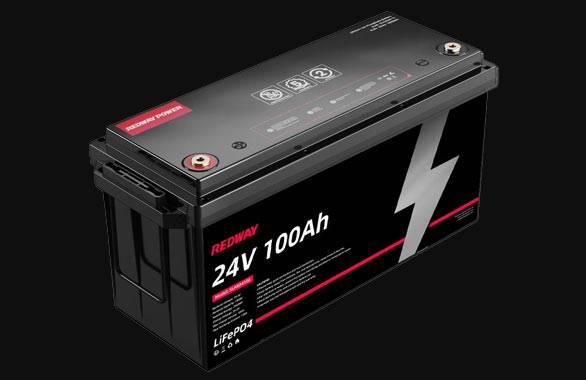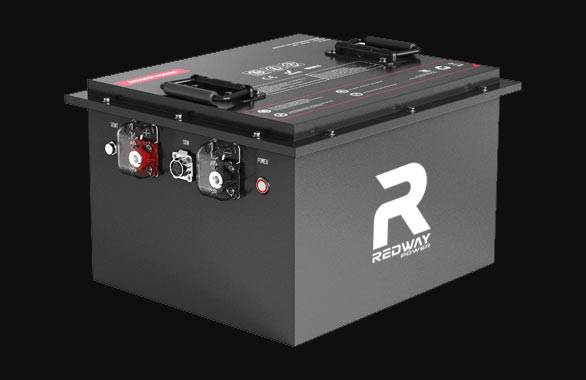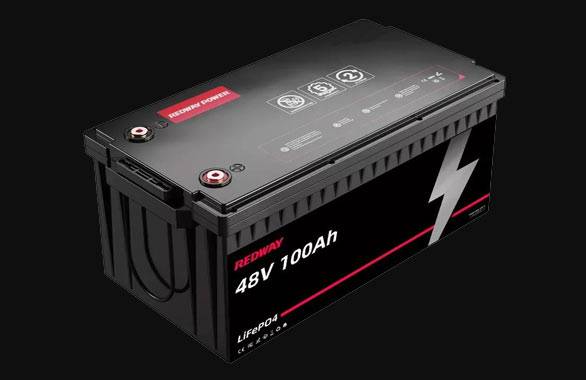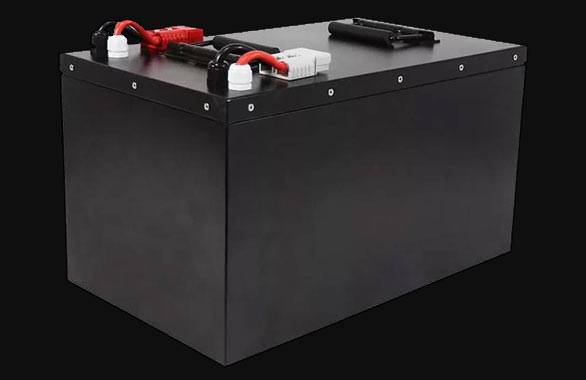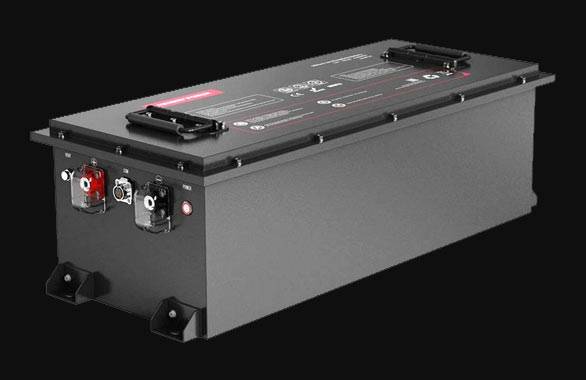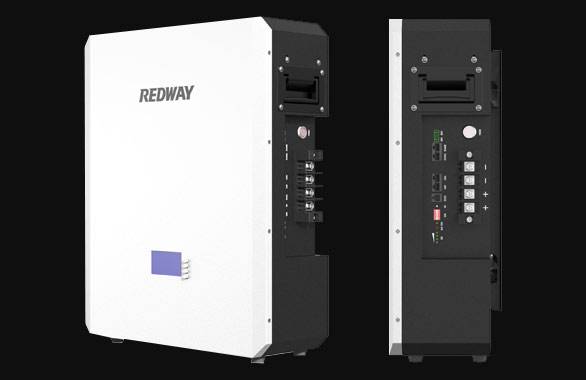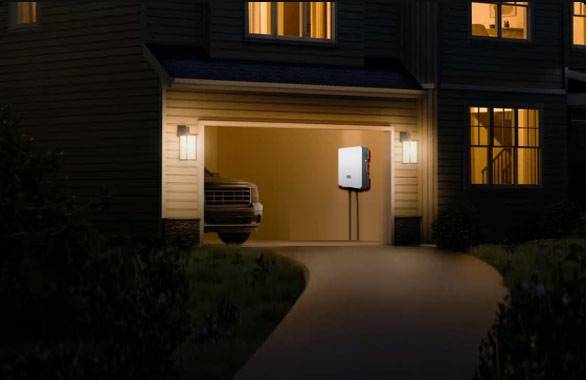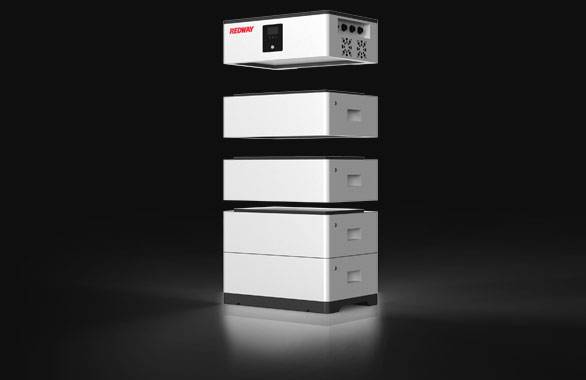- Forklift Lithium Battery
- Golf Cart Lithium Battery
- Rack-mounted Lithium Battery
51.2V 100Ah Rackmount LiFePO4 Battery
8000 times (80% DOD 0.5C)
Optional SNMP for TELECOM - Car Starter Battery
- 12V LiFePO4 Battery
12V 150Ah Lithium RV Battery
Bluetooth App | Self-heating
LiFePO4 | Group 31
UL 1642 | IEC 62619 - 24V LiFePO4 Battery
- 36V LiFePO4 Battery
- 48V LiFePO4 Battery
- 60V LiFePO4 Battery
60V 100Ah Lithium Battery (AGV, AMR, LGV)
Peak Discharge Current 400A
500 x 298 x 349 mm - 72V~96V LiFePO4 Battery
72V 100Ah Lithium Golf Cart Battery
Peak Discharge Current 315A (10S)
740 × 320 × 246 mm - Wall-mounted Lithium Battery
51.2V 100Ah 5kWh
Wall-mounted Battery532 x 425 x 170 mm / LiFePO4
>8000 Cycles (80% DOD 0.5C)
RS485 / CAN-bus
for Solar Home ESS - Home-ESS All-in-One
51.2V 32kWh
All-in-On HESS SystemPowerAll
51.2V / LiFePO4
>8000 Cycles (80% DOD 0.5C)
RS485 / CAN-bus / WiFi
All-in-One for Home ESS
Why Choose 12 Volt Lithium Golf Cart Batteries from Redway Factory
12V lithium golf cart batteries from Redway Factory offer superior energy density, extended cycle life (2,000–5,000 cycles), and 70% lighter weight than lead-acid alternatives. Built with UL-certified LiFePO4 cells and proprietary BMS technology, they ensure safe operation across -20°C to 60°C and compatibility with most golf carts. Customizable capacities (30Ah–200Ah) and 2-hour fast charging make them ideal for recreational and commercial use.
Understanding the Lifespan of Trojan Golf Cart Batteries
What advantages do 12V lithium batteries offer over lead-acid?
12V lithium batteries outperform lead-acid with 3-5x longer lifespan, 30% faster charging, and 60% weight reduction. Redway’s LiFePO4 cells maintain 80% capacity after 3,000 cycles vs. 300–500 cycles for flooded lead-acid. Pro Tip: Lithium’s flat discharge curve sustains consistent power until 90% depth of discharge (DoD).
Beyond weight savings, lithium’s 95% energy efficiency minimizes voltage sag during acceleration—critical for hilly golf courses. For example, a Redway 100Ah lithium pack weighs 26 lbs versus 68 lbs for lead-acid, freeing up payload for passengers. But what about cost? While lithium costs 2x upfront, lifetime savings from 8+ years of use offset this. A table comparison reveals stark contrasts:
| Feature | Lead-Acid | Redway LiFePO4 |
|---|---|---|
| Cycle Life | 300–500 | 2,000–5,000 |
| Charge Time | 8–10 hrs | 2–3 hrs |
| Weight (100Ah) | 68 lbs | 26 lbs |
⚠️ Warning: Never mix lithium and lead-acid batteries in series—voltage mismatches can damage systems.
How does Redway ensure lithium battery safety?
Redway integrates a 16-layer BMS with overcharge/discharge cutoff, cell balancing, and thermal sensors. Their LiFePO4 chemistry is inherently stable, resisting thermal runaway even at 300°C. Steel-cased battery packs meet IP67 waterproofing for harsh environments.
Practically speaking, the BMS monitors each cell’s voltage ±0.02V, preventing dangerous imbalances. For example, if one cell hits 3.65V during charging, the BMS redirects current to weaker cells. Pro Tip: Avoid storing batteries below 0°C while charging—Redway’s optional self-heating pads ($25 upgrade) solve this. Transitional design features include flame-retardant separators and explosion-proof vents exceeding UN38.3 standards.
Are these batteries compatible with non-golf cart applications?
Redway’s 12V lithium batteries power RVs, marine trolling motors, and solar storage due to vibration resistance (MIL-STD-810G) and 10-year calendar life. Unlike golf-specific lead-acid, they handle partial charging without sulfation damage.
Beyond golf carts, a 200Ah Redway battery can run a 1,000W RV inverter for 12 hours. But what about marine use? Saltwater corrosion is mitigated via epoxy-coated terminals and stainless-steel hardware. Pro Tip: For solar setups, pair with a 30A MPPT charger—PWM controllers waste 20% energy. Real-world example: Florida solar farms use Redway batteries for nighttime irrigation pumps due to 95% round-trip efficiency.
Understanding Lithium Golf Cart Batteries – A Comprehensive Guide
Redway Battery Expert Insight
Redway’s 12V lithium batteries redefine reliability with military-grade BMS and customizable capacities. By using automotive-grade LiFePO4 cells, we deliver 10,000+ cycles at 1C discharge—perfect for commercial golf courses needing daily deep cycles. Our factory-direct pricing cuts middlemen costs, while 24/7 technical support ensures seamless integration with Club Car, EZGO, and Yamaha carts.
FAQs
Do Redway batteries work with existing lead-acid chargers?
Yes, but optimal lifespan requires a lithium-specific charger. Lead-acid chargers’ higher float voltages (13.8V) stress LiFePO4 cells—Redway’s chargers stop at 14.6V ±0.2V.
Can I parallel multiple 12V Redway batteries?
Yes, up to 4 in parallel. Use identical batteries and 4AWG interconnects to minimize resistance imbalances. Never exceed 48V systems without professional configuration.
How to maintain peak performance in winter?
Keep batteries above -20°C during use. Store at 50% charge in insulated boxes. Redway’s $45 thermal blankets maintain 5°C–30°C for consistent capacity.


